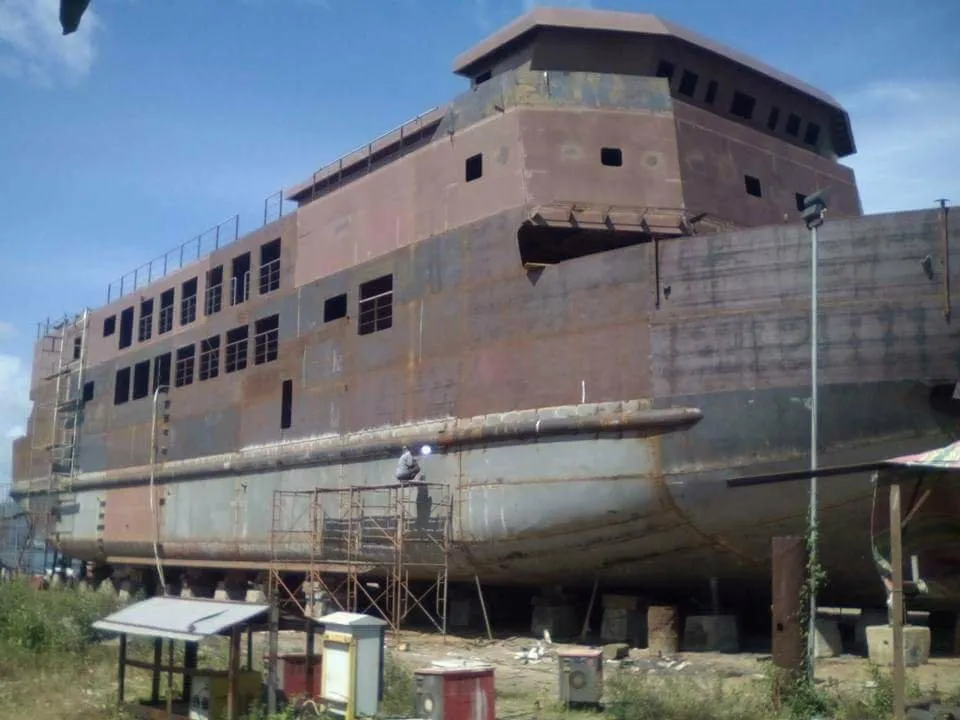
Actually this is my experience during the KP (Work Practice) in one of the shipyards in Surabaya, around February 2013. Job Training is required from the University because there is a weight of credits in the course, with a period of 1 month. A lot of experience can be made during practical work, because not only theory and practice directly faced with various problems to be solved. Ok than the length, immediately wrote to the material to be discussed.
To build a ship that requires planning that includes the progress of shipbuilding development, namely:
1. Ship planning process (calculation and ship drawing).
2. Moldloft process (picture floor).
3. Sand blasting and primary coating process.
4. Lay-off Process.
5. Fabrication Process (marking, cutting, shaping).
6. Assembling / Assembling Process Sub.
7. Erection process, development method.
8. Outfitting process (electrical installation & piping).
9. Impersonation Process.
10. Leak testing process (welding & tank).
11. Launch process.
12. The Sea Trial Process.
Here's an explanation of the above steps:
1. The ship planning process

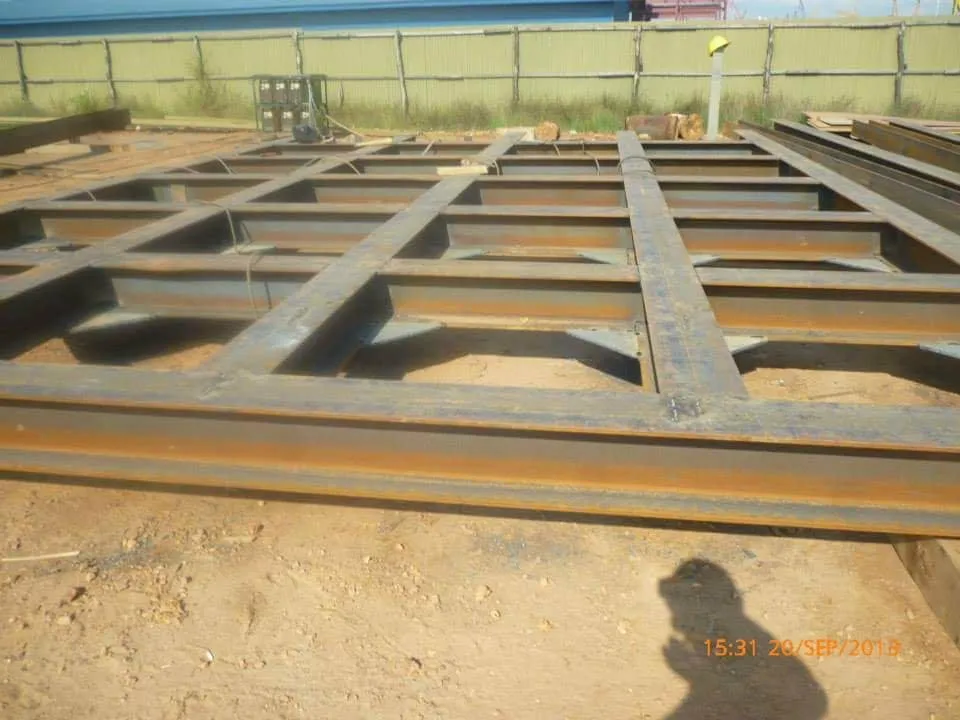
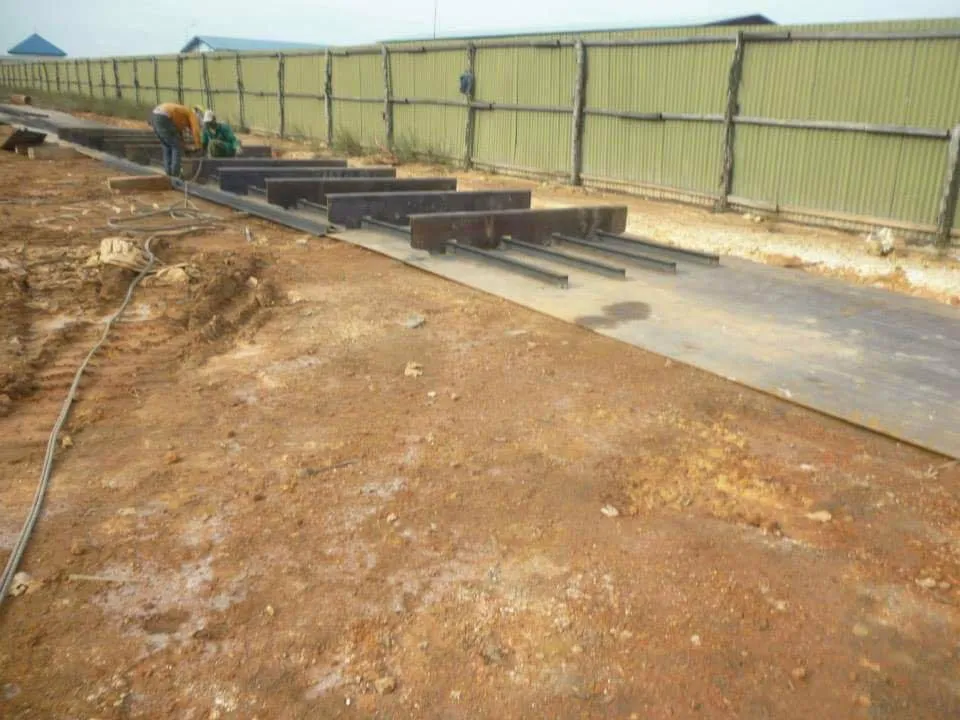
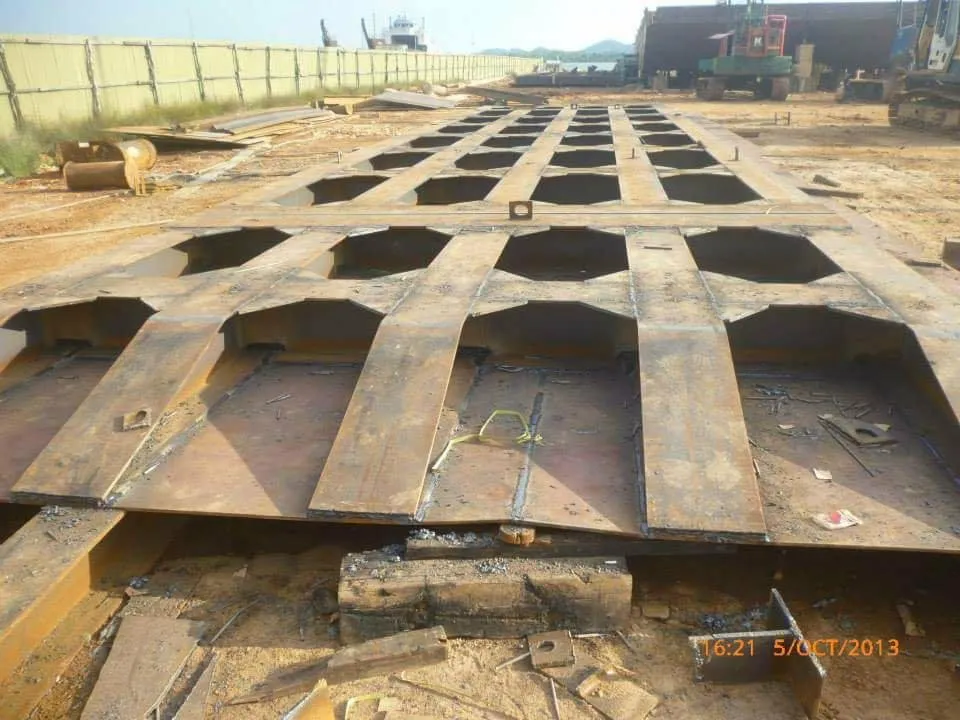
The process of marking on the floor of the mouldloft the first thing to do is to give a picture of the ship's lines plan to the person in charge of the moudloft section. With the condition of the image that we provide must be with a complete scale and dimensions, then lines plan is redrawn with a 1: 1 scale.
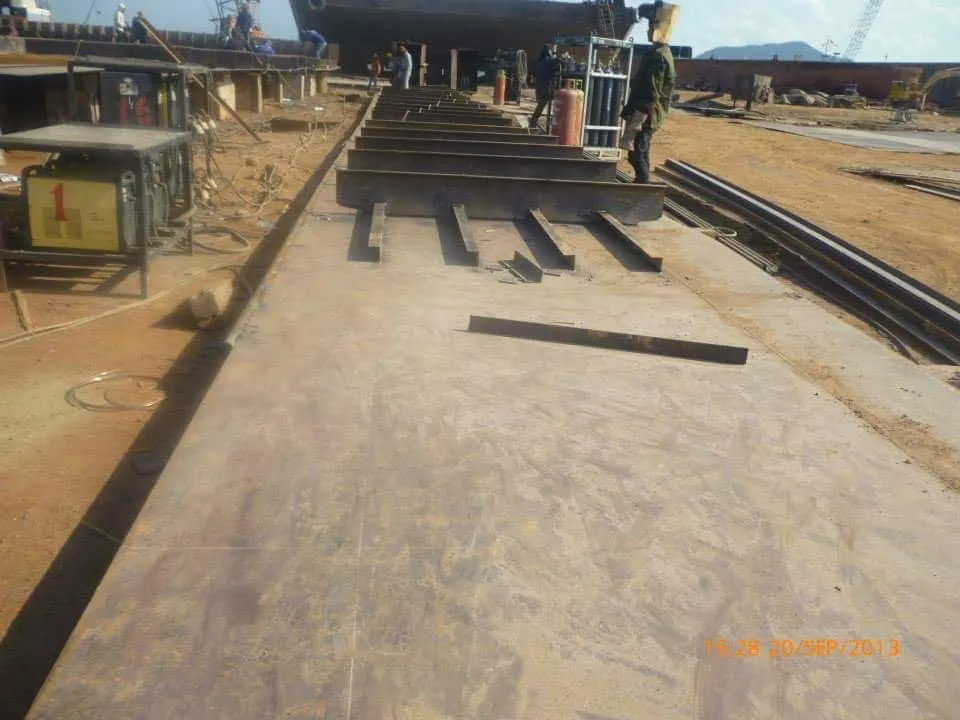
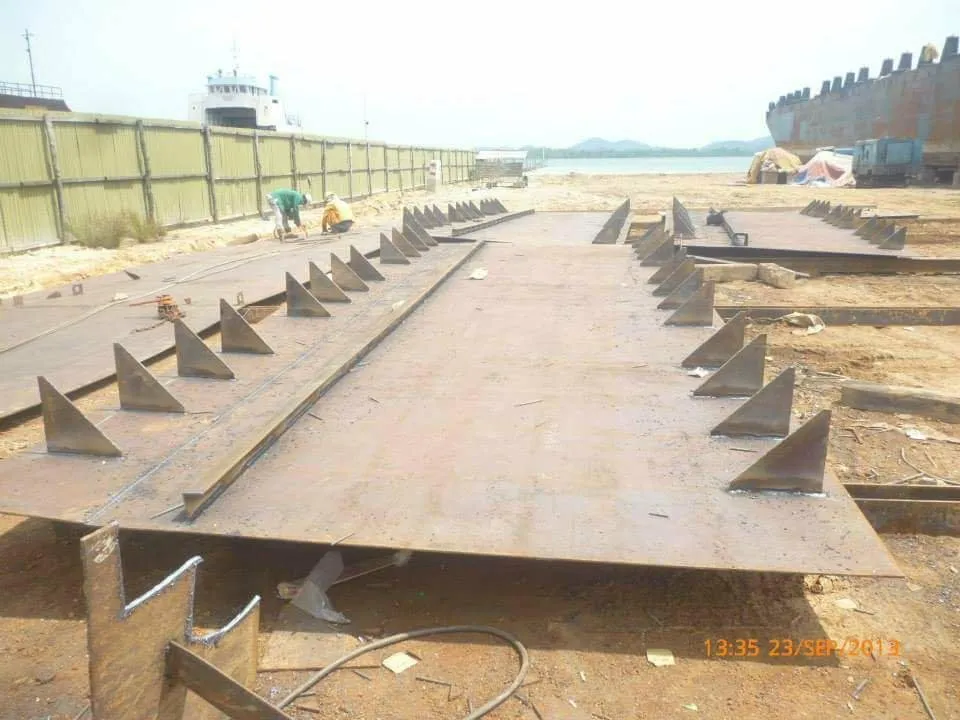
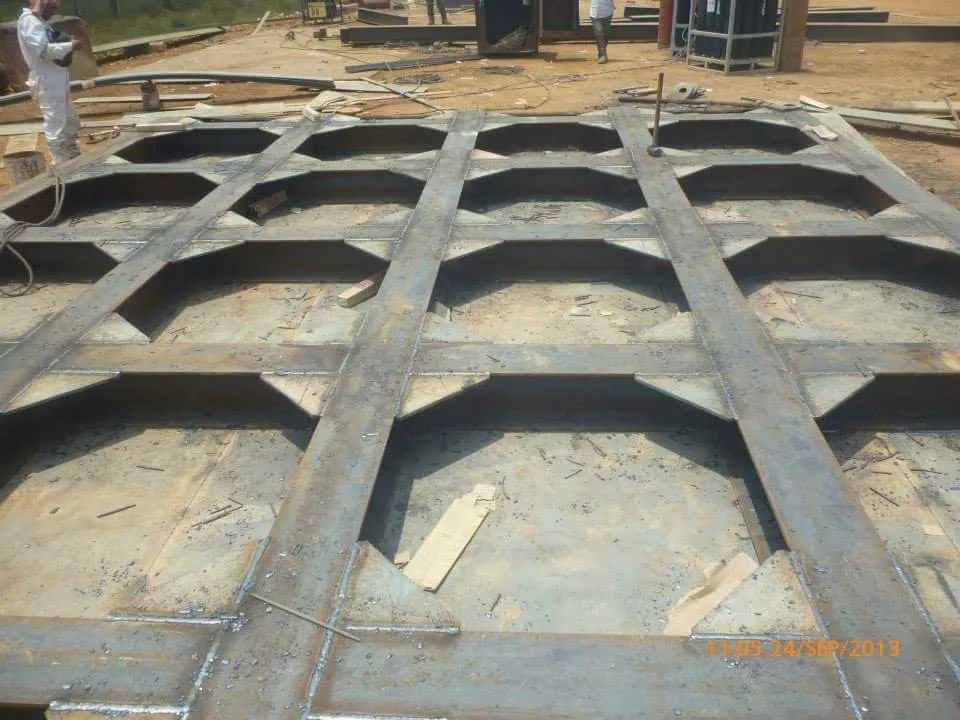
The process of shooting the blasting material on the surface of the plate, profile, pipe, and other materials to obtain the level of cleanliness and surface roughness in accordance with the desired specifications. The plates and profiles that enter the fabrication workshop are firstly plastered to remove the existing millscale layer on the material layer. In blasting process used cast steel grit with size HG 25 (can be used 20 times blasting, high price), besides can also use silica sand or sand of bangka (only 2 times blasting, cheap price).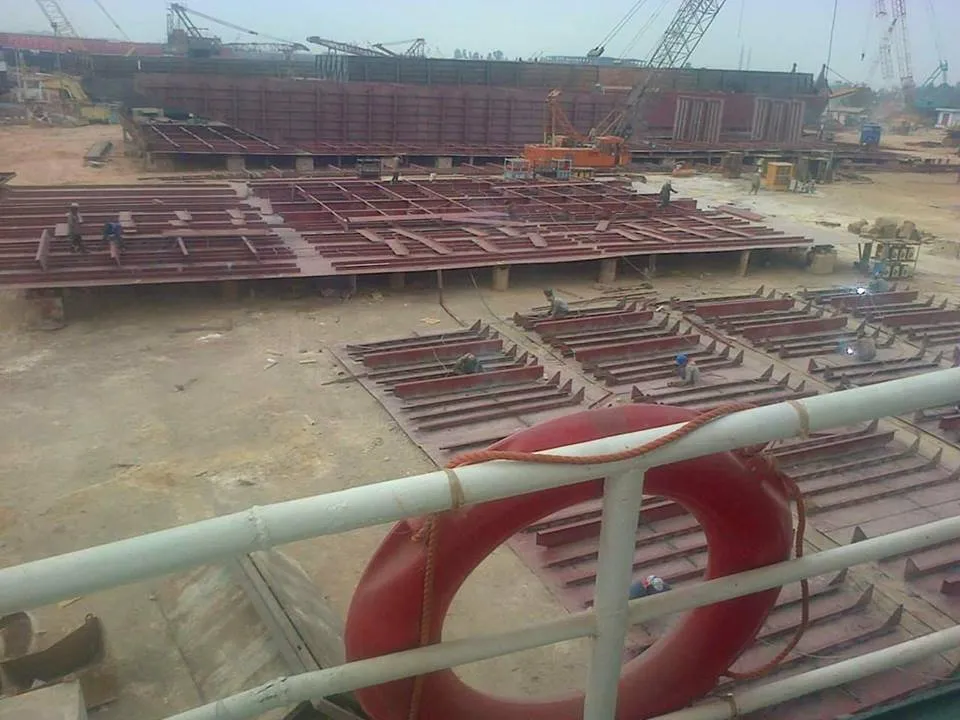
Furthermore, after diblasting then the material is painted base (Shop primering) with a thickness of 18-25 micrometers to avoid damage in the fabrication process. This paint to protect the material from corrosion can last between 3 - 12 months (temporary).
Keel laying process
An initial process of new ship building, this process is symbolic from the start of shipbuilding. Requirements are usually determined by the class body or ship owner. The usual rule is 10% gross tonage from DWT ship.
The fabrication process
The fabrication process consists of marking, cutting and forming. Before the process is done first identify the material has been classified or not (check the number of pelaris with the list contained in the class). Upon completion of the identification then the classification party will sign the examination of the plate.
Marking
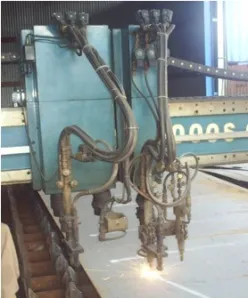
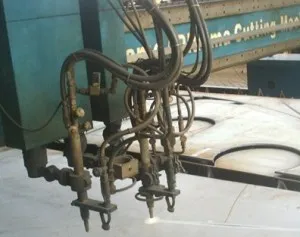
The tagging process on the mualai plates of the profile and frame tagging. Every piece of material that has been marked must be clearly named so as not to be confused with other materials at the time of assembly. Name is adjusted to the code listed in the material list and marking list, the name includes ship number, block number, marking position.

The process of cutting the plate by using a gas cutter or acetylene, with mengahtikan cut angle, cutting speed, and thick plates to be cut.
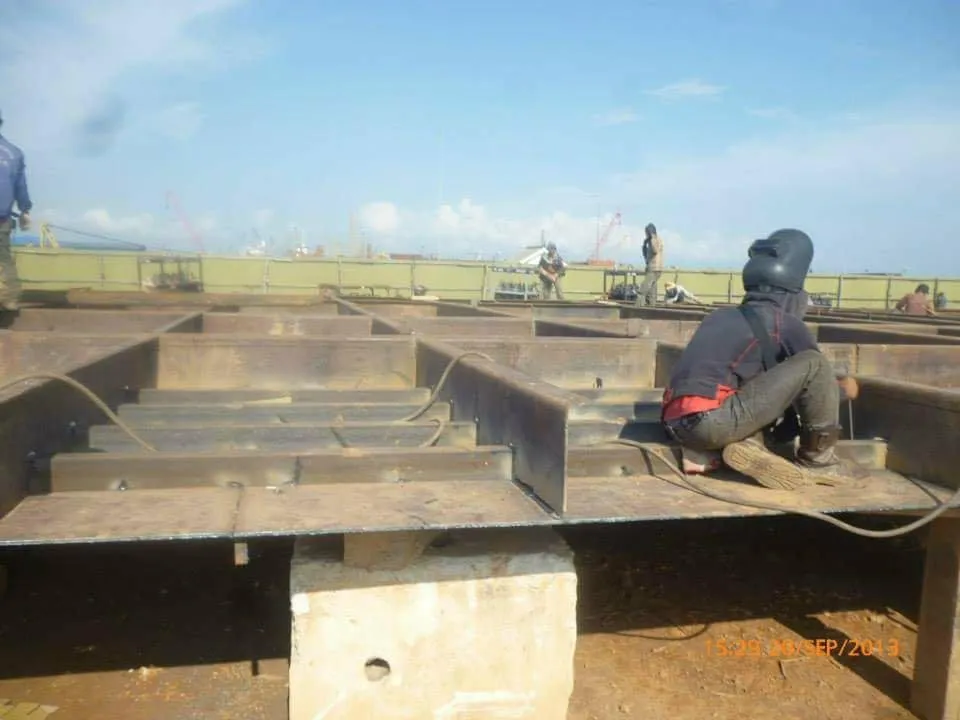
The process of forming the plate from its original shape becomes the desired shape. Forming plate assisted roll machine, bending machine, and press machine.

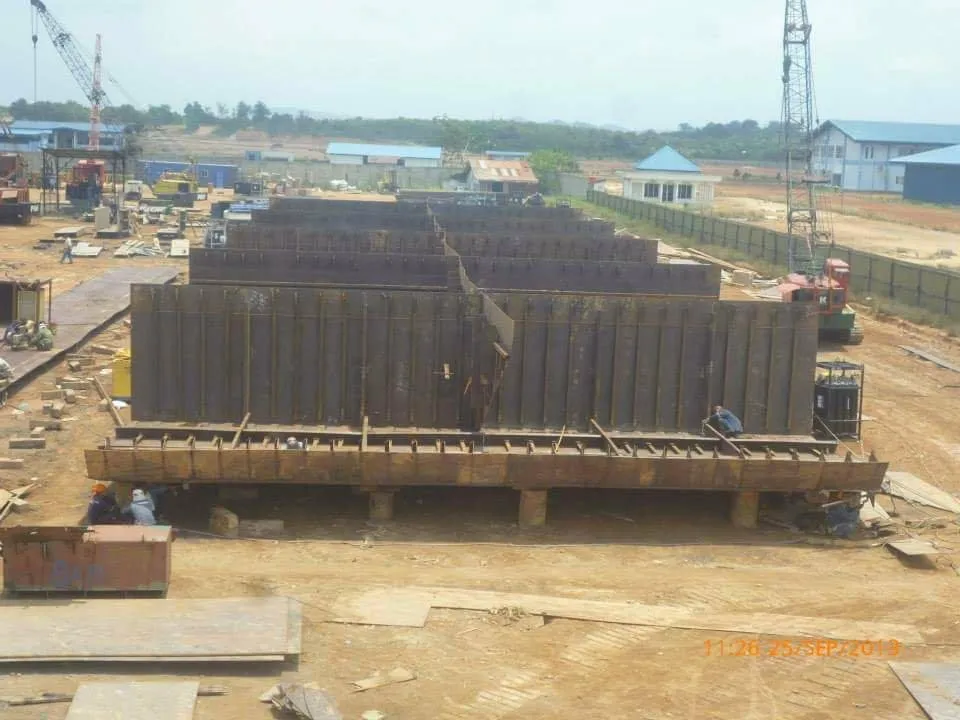
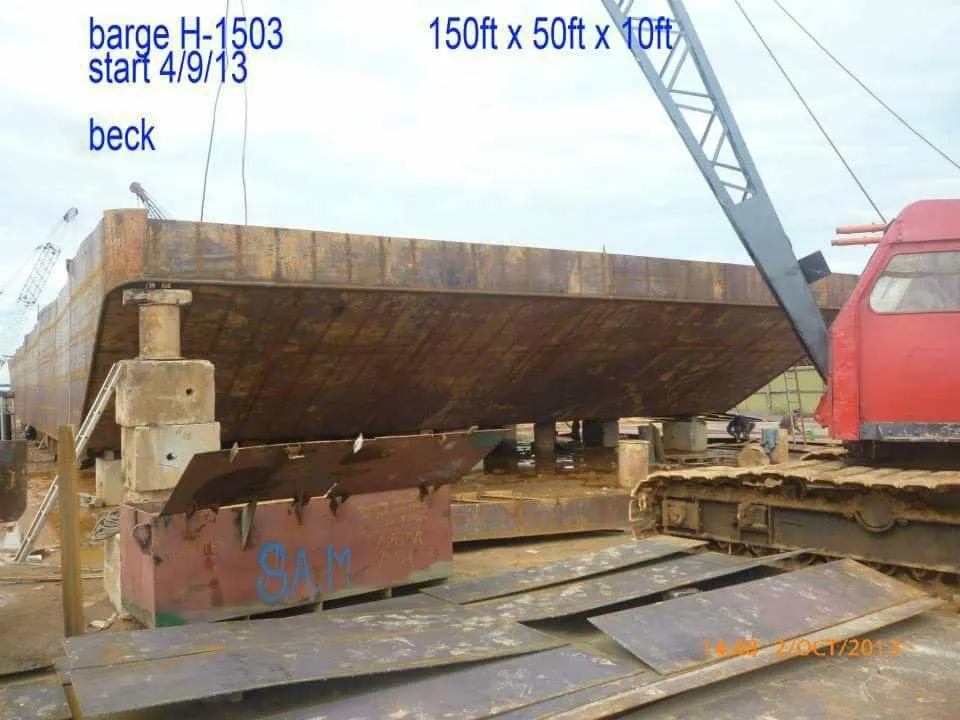
Merge some small components into a block. Or it could be called a block assembly process. Sub assembly is a process of incorporating component components from fabricated fabrication into small blocks (part assembly). The components are still plates with straight (parallel) or non-straight (parallel) pieces, curved plates and others such as pipe parts. For example the process in this sub assembly is a merger between assembling bulkhead, assembling web frame, assembling plate with plate.
Assembly
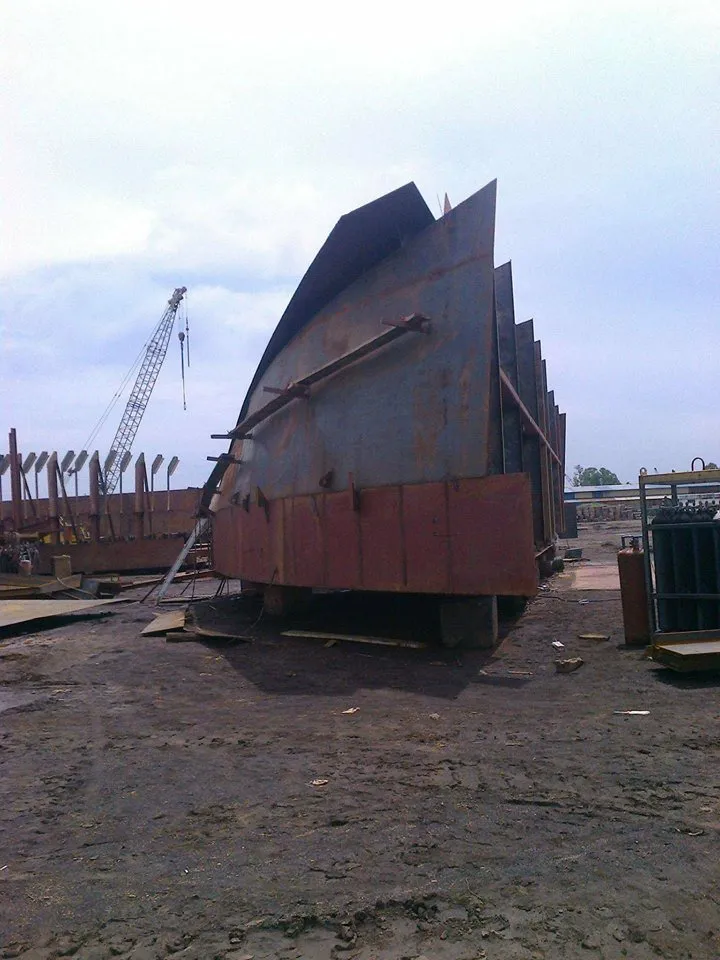
Advanced process of Sub Assembly, which is the process of installing the frame on the skin of the stomach, merging several wrang, and also the merger of two blocks. The process of merging the assembly part that has been in the sub assembly into a block. The built blocks are calculated according to the capacity of the crane.
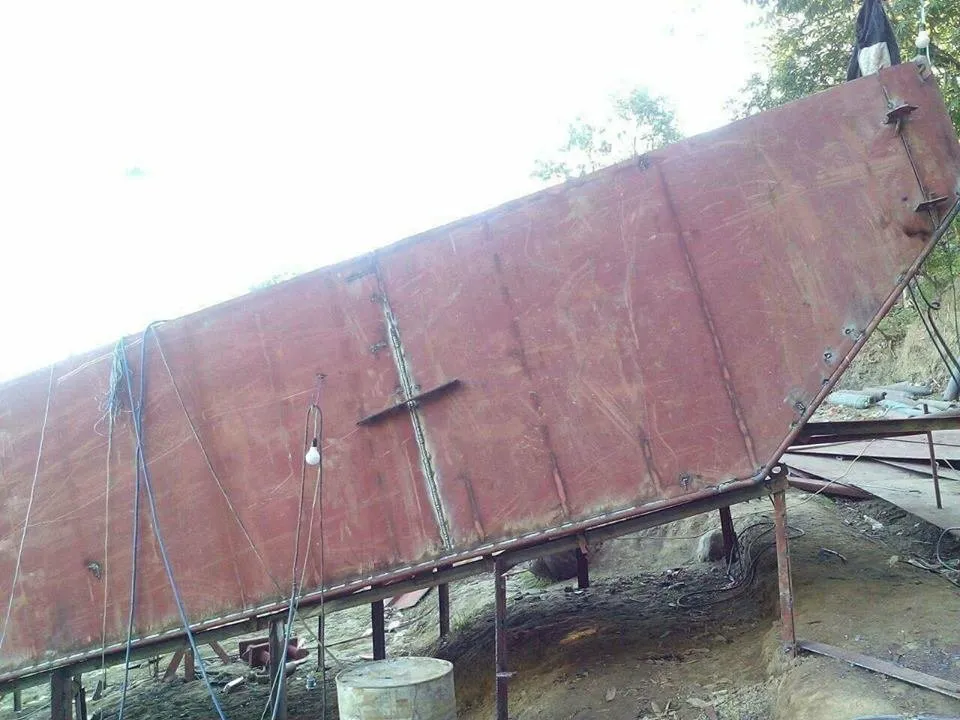
This process is done after the Sub Assembly and Assembly work has been completed. Erection is the process of merging between the block structure to the shape of the ship. Erection is the last level of the assembly process. This process is a combination of blocks from the assembly process into a ship. This erection process starts from the double bottom block which usually coincides with the process of keel laying then more up to the superstructure. Before the erection process done the reversal of blocks to be dierection. After the block is reversed the block dierection, for the erection block here done on two double bottom blocks which is also the keel laying ship.

Outfitting is the process of mounting ship components, including hull outfitting, piping, accomodation, propulsion systems and machinery outfitting.
Painting process
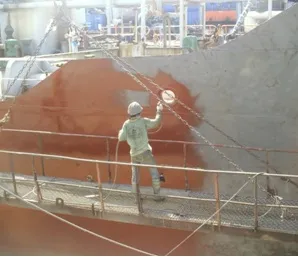
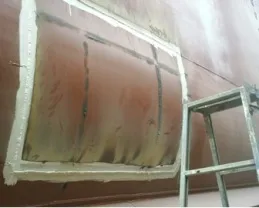
The process of painting is a process whereby painting is done. painting is intended to protect the material surface from environmental influences that may have an impact on corrosion.
Painting should also pay attention to:
- Planning
Implementation and conditions of good workers
Weather conditions
Selection Method
Leakage test is a form of testing on welding ship construction to determine whether the welding is leaked or not. There are several kinds of leak tests include: Water Test - Calk Test, Hose Test - Vacum Test, Hydro test.

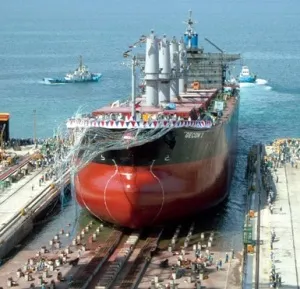
Launching
Launching is the process by which the ship drops from the launch pad into the water. This stage is done after the ship's body has been formed perfectly and has been carried out checked leakage.
Sea trial Namely the performance test of the ship, which is done by the owner of the ship, the shipyard, and also the class body. Testing includes: speed, maneuverability, drop and withdrawal of anchors, firefighters, etc. relating to the overall function of equipment and equipment on board at the time of the vessel sailing.
Well .. that was the discussion about the stage of shipbuilding that I learned from my KP experience, in fact there are many more details of each stage of manufacture, I just explained the outline just so as not too complicated to understand. In the next post I will explain in more detail, so wait aja post.